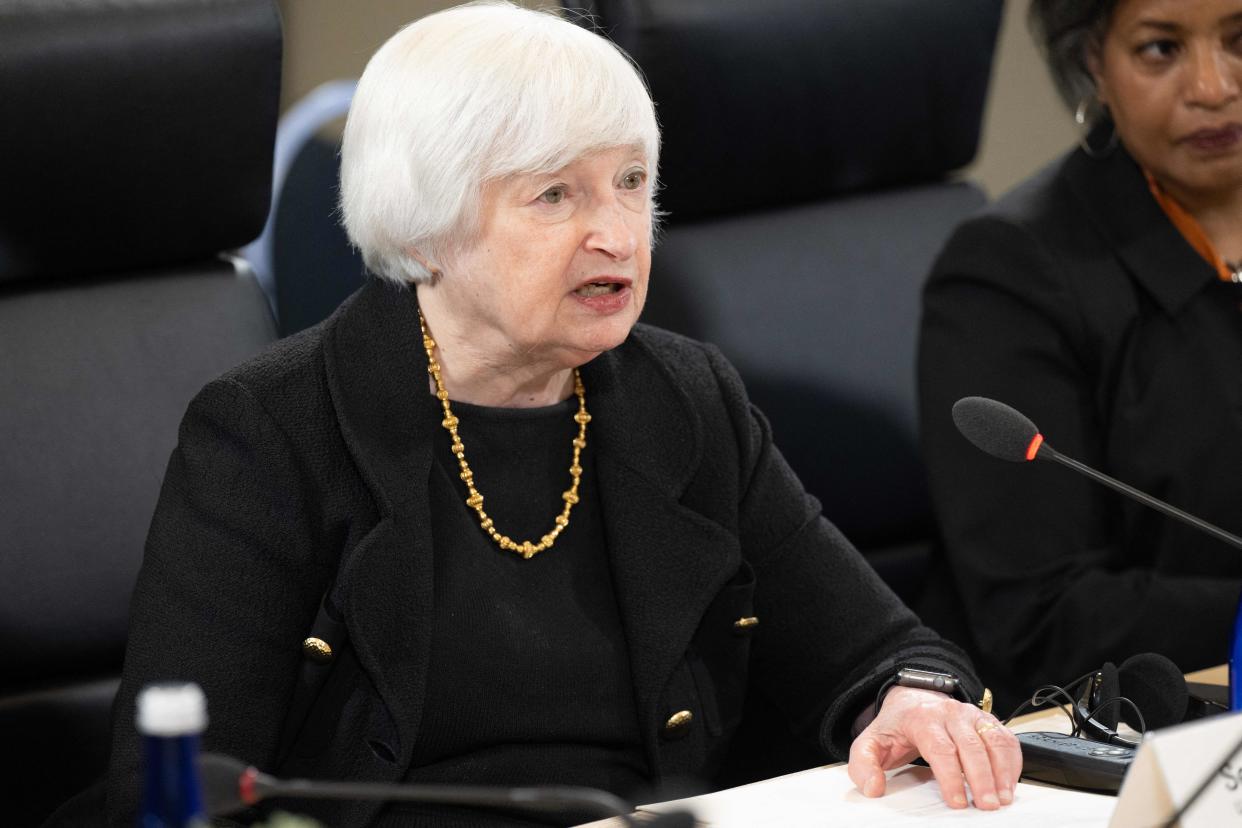Yellen warns of 'irreparable harm' if debt ceiling not raised in letter to Congress
Treasury Secretary Janet Yellen warned the formal debt limit is set to be reached next week in a letter to Congress on Friday and pushed lawmakers to increase or suspend the limit in a "timely manner" to avoid economic damage.
"Failure to meet the government's obligations would cause irreparable harm to the U.S. economy, the livelihoods of all Americans, and global financial stability," Yellen wrote on Friday.
The long-awaited milestone, after which the U.S. borrowing authority of approximately $31.4 trillion will be exhausted, is expected to kick off a heated debate in Congress. Many Republicans are expected to block any attempts to increase borrowing authority in the coming months without deep concessions from Democrats on spending cuts.
In the absence of action, Yellen outlined the "extraordinary measures” the Treasury Department can take by essentially moving money around to stave off an actual default on U.S. obligations — but it only works for a short period, a major concern for investors.
“The period of time that extraordinary measures may last is subject to considerable uncertainty due to a variety of factors,” Yellen wrote on Friday, noting the first measures would be implemented this month.
She would not provide an exact estimate of when the U.S. would be unable to pay its debts, but added “it is unlikely that cash and extraordinary measures will be exhausted before early June.”
Other groups have projected that the U.S. can maintain its borrowing authority for slightly longer.
The Bipartisan Policy Center, which tracks the issue closely, has estimated that the date when extraordinary measures run out — which it calls the “X date” — is likely to fall in the third quarter of 2023. But the center has cautioned that could change depending on budget projections due out in coming weeks.
The stakes surrounding the debt ceiling are high for markets.
This year's coming battle is often compared to 2011 when a protracted fight over raising the limit led to losses in U.S. equity markets. That fight, which was resolved at the last minute, nonetheless led to the only downgrade of the United States credit rating in history, one of the "real harms" that Yellen mentioned in her letter on Friday.
This time around, some experts say it could be even worse with brinkmanship possibly hurting Treasury bonds and even the U.S. dollar.
To thwart a crisis, policymakers have floated different ways to short circuit a face-off from obscure congressional maneuvers to White House executive actions. But House Republicans have vowed to keep the pressure on and push negotiations as far as they can.
In a press conference on Thursday, Speaker Kevin McCarthy (R-CA) reiterated his plans to use the debt ceiling as leverage and vowed to "scrutinize every dollar spent" by the Biden administration in the years ahead.
On the other side, the White House and other Democratic officials have said again and again that they will not negotiate at all on the debt limit.
“I urge Congress to act promptly to protect the full faith and credit of the United States," Yellen concluded in her letter Friday.
Ben Werschkul is a Washington correspondent for Yahoo Finance.
Read the latest financial and business news from Yahoo Finance
Follow Yahoo Finance on Twitter, Facebook, Instagram, Flipboard, LinkedIn, YouTube, and reddit.
Source: Read Full Article
